Understanding Mosses
Mosses are small, non-vascular plants that belong to the division Bryophyta. They are found in moist and shaded areas, and often grow in clusters or mats. Mosses play a crucial role in the ecosystem by helping to retain moisture, prevent soil erosion, and provide habitats for small organisms.
Life Cycle of Mosses
Mosses have a unique life cycle that involves alternation of generations. The dominant stage in the moss life cycle is the gametophyte, which produces both male and female gametes. When the male gametes fertilize the female gametes, a sporophyte is formed, which eventually releases spores to start the cycle anew.
Key Characteristics of Mosses
- Non-vascular: Mosses lack vascular tissues, such as xylem and phloem, which are found in higher plants.
- Small size: Mosses are typically small, ranging from a few millimeters to a few centimeters in height.
- Moisture-dependent: They require water for reproduction, and their thin, delicate structures are prone to desiccation.
- Reproduction: Mosses reproduce via spores, which are dispersed by the wind or water.
- Habitat: They are commonly found in damp, shaded environments, such as forests, bogs, and along stream banks.
Ecological Importance
Mosses contribute to the environment in various ways, such as:
- Providing habitat and food for insects, small mammals, and microorganisms.
- Helping to retain moisture in the soil and prevent erosion.
- Contributing to nutrient cycling and soil formation.
- Acting as indicators of environmental health due to their sensitivity to pollution and changes in air quality.
Study Guide
When studying mosses, it's important to focus on the following key areas:
- Understanding the life cycle of mosses, including the alternation of generations and the roles of gametophytes and sporophytes.
- Identifying the unique characteristics of mosses, such as their lack of vascular tissues and their moisture-dependent nature.
- Exploring the ecological importance of mosses and their roles in various ecosystems.
- Learning to recognize different species of mosses and understanding their habitats and adaptations.
- Considering the conservation and environmental implications of mosses and their sensitivity to human activities.
By delving into these aspects, you can gain a comprehensive understanding of mosses and their ecological significance.
.◂Science Worksheets and Study Guides Eighth Grade. Fossils

 Activity Lesson
Activity Lesson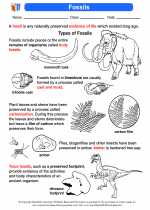
 Worksheet/Answer key
Worksheet/Answer key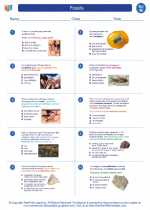
 Worksheet/Answer key
Worksheet/Answer key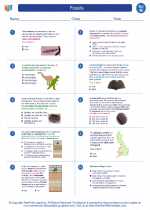
 Worksheet/Answer key
Worksheet/Answer key
 Worksheet/Answer key
Worksheet/Answer key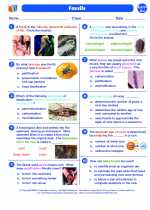
 Vocabulary/Answer key
Vocabulary/Answer key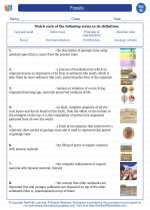
 Vocabulary/Answer key
Vocabulary/Answer key
